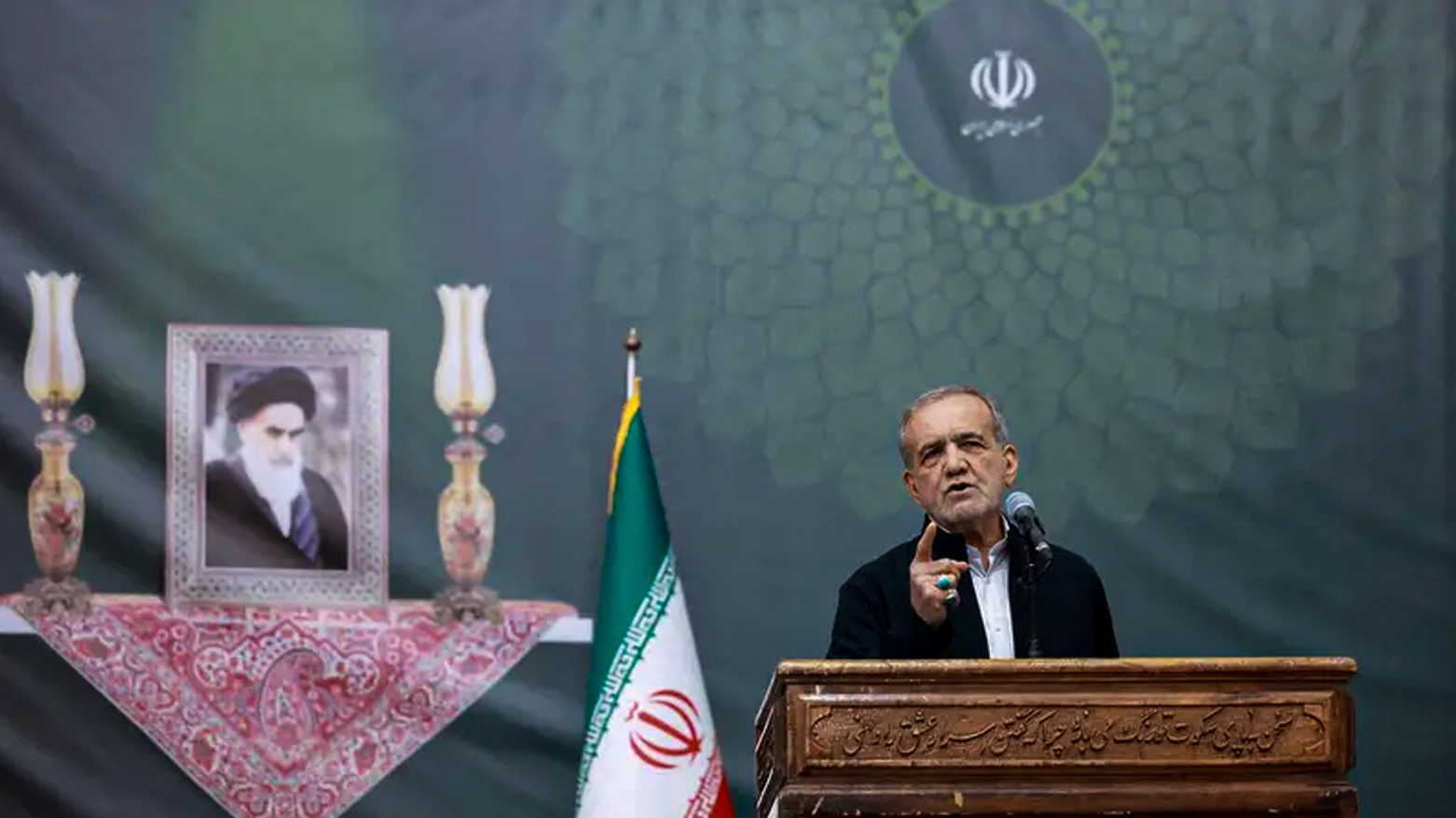Iran Reaffirms Opposition to Nuclear Weapons Amid U.S. Tensions Ahead of Sixth Negotiation Round
Iran denies nuclear weapons pursuit amid rising tensions with US ahead of crucial Oman talks. Tehran warns against military threats as both sides prepare for high-stakes negotiations on enrichment program.

By Ahora Qadi
ERBIL (Kurdistan24) – Iranian President Masoud Pezeshkian reiterated on Wednesday that the Islamic Republic has no intention of pursuing nuclear weapons, while simultaneously criticizing U.S. military posturing and what he described as ongoing Western attempts to impose conditions on Tehran.
Speaking during a visit to Ilam Province in western Iran, Pezeshkian emphasized that despite continuous dialogue with both the United States and European countries, Iran would not accept any “dictates” from foreign powers. “Our enemies are working to provoke internal unrest to justify external aggression,” he said. “But their plans will fail.”
The remarks come amid mounting diplomatic tensions just days ahead of a scheduled sixth round of nuclear negotiations between Iran and the United States, set to be held in Oman this Sunday. U.S. President Donald Trump has publicly hinted at the possibility of military action should the talks collapse, though he has also maintained that diplomacy remains his preferred approach. “Tehran has become more aggressive in the negotiations,” Trump warned Tuesday.
In response, Iranian Defense Minister Aziz Nasirzadeh issued a stark warning: “If conflict is imposed upon us, we will target all U.S. bases across the region with force.” Speaking at a press briefing on Wednesday, Nasirzadeh also revealed that Iran recently tested a new missile equipped with a two-ton warhead.
He further rejected any external attempts to limit Iran’s missile development program, saying the country will not accept restrictions on its “defensive capabilities.”
Iran’s UN Mission Slams U.S. Regional Role
In a related development, Iran’s mission to the United Nations issued a strongly worded statement via social media platform X, accusing the U.S. Central Command (CENTCOM) of destabilizing the region through the arming of “aggressors” and the empowerment of “Israeli crimes.” The mission stated that such actions strip Washington of any credibility in promoting peace or preventing nuclear proliferation.
“Only diplomacy — not military threats — can move the region forward,” the statement read. “Threatening overwhelming force does not alter the fact that Iran is not pursuing nuclear weapons, and that U.S. militarization only deepens instability.”
Nuclear Talks at a Critical Crossroads
As Washington and Tehran prepare for a fresh round of negotiations, expectations remain tempered. Iranian Foreign Minister Abbas Araqchi confirmed Wednesday that the talks are likely to convene on Sunday, contradicting earlier remarks by President Trump that suggested they would begin Thursday.
Iran is reportedly preparing a counter-proposal in response to an American offer conveyed via Omani intermediaries more than a week ago. While details remain scarce, both sides are under increasing pressure to show flexibility as international concern grows over the rapid advancement of Iran’s uranium enrichment program.
According to a recent report by the International Atomic Energy Agency (IAEA), Iran has amassed over 408 kilograms of uranium enriched to 60% purity — a technical threshold that puts the country dangerously close to weapons-grade capability.
Strategic Calculations on All Sides
Amid escalating rhetoric, Iranian officials continue to assert that their nuclear program is solely for peaceful purposes. However, rising regional tensions and the shadow of potential military escalation threaten to derail fragile diplomatic efforts.
The outcome of the upcoming round in Oman could prove decisive. For Iran, it is a moment to assert its sovereignty while navigating international expectations. For the U.S., it is a final chance to forestall conflict through negotiation. And for the wider Middle East, the talks represent a critical opportunity to step back from the brink.
